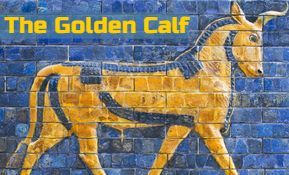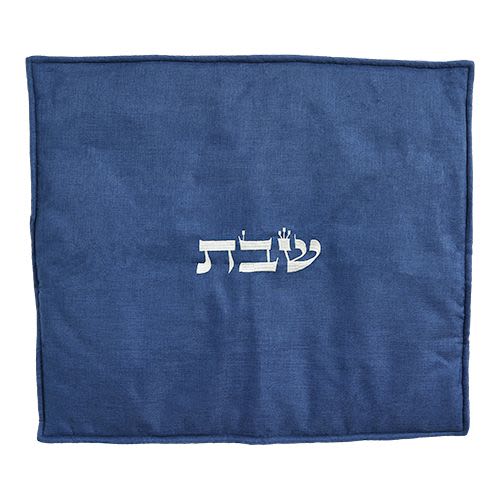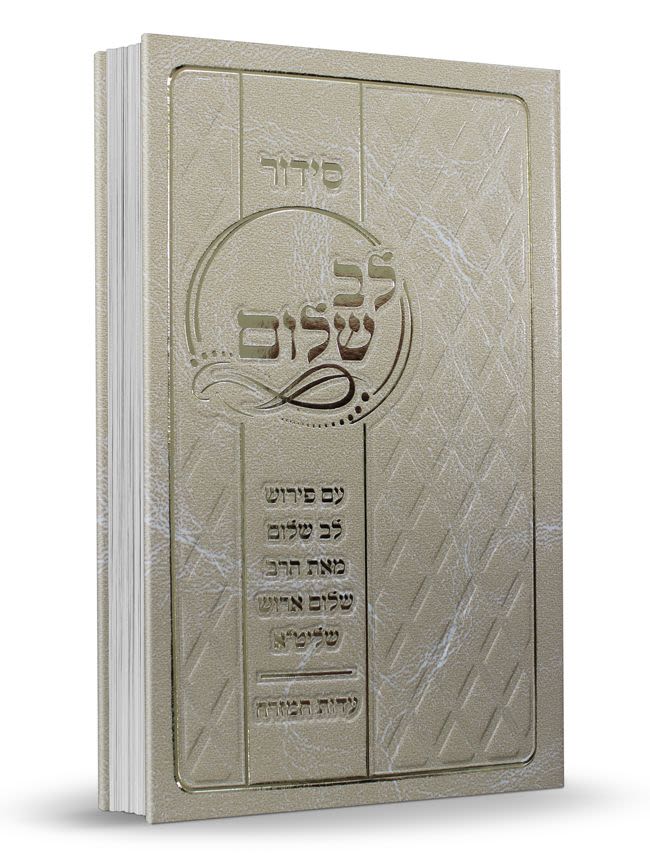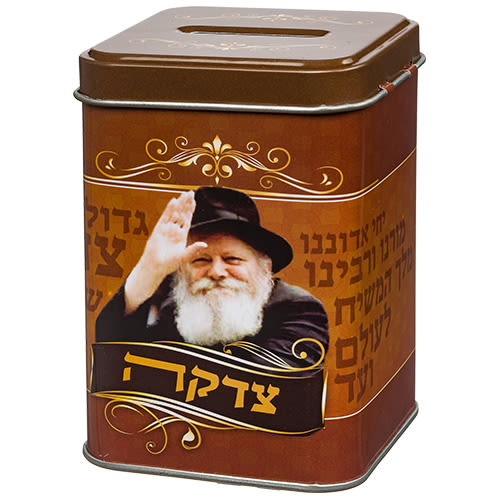
Vayakhel Pekudei: The Heart Counts
There are two types of givers: those “whose spirit moves them” to give wholeheartedly what they can afford, and an even nobler category of people “whose heart inspires them” to give more than they can afford.

The Generous Farmer
An incident in the life of Rabbi Chaim of Volozhin provides a fascinating insight into this week’s Torah portion. When Rabbi Chaim founded the famous Yeshiva in Volozhin, known as the mother of all modern-day Yeshivot, he sent meshulachim (representatives) to all the far-flung corners of Russia and Eastern Europe to create a group of regular supporters.
Rabbi Chaim supervised every detail of the fundraising and regularly checked each of the mechulachim’s books. He was surprised that one of the representatives received fifty rubles, a large sum in those days, from a farmer living in an isolated hamlet.
After a number of years of making his rounds on foot, the meshulach who visited the farmer felt that he could be more effective if he had his own horse and wagon.
Rabbi Chaim agreed. The meshulach was also given fine clothing based on the claim that if he made a good impression in the homes of the wealthy, donations would increase.
But when the meshulach arrived at the home of the generous farmer, the farmer refused to contribute. “Not only won’t I give you a penny, but I’m sorry I was so generous in the past,” he bitterly exclaimed.
The puzzled meshulach could not convince the farmer to budge. The farmer would not give a penny.
Back in Volozhin, the meshulach handed Rabbi Chaim his books. Rabbi Chaim noticed the missing contribution and asked the meshulach for an explanation. Rabbi Chaim was also perplexed by the farmer’s reaction and asked the meshulach to let him know when he would be traveling to the farmer again.
Hay for Horses
The following year, Rabbi Chaim accompanied the meshulach to the farmer’s house. The farmer was flabbergasted at the sight of the generation’s greatest Torah leader standing at his front door. Trembling in awe, he rushed to invite Rabbi Chaim into his home and hurried to honor him to the best of his ability. Rabbi Chaim asked the farmer, “Why did you stop contributing to Volozhin Yeshiva?”
“I’ll tell you the truth,” the farmer began, “I admire the Yeshiva more than anything in the world, and it was always my greatest pride to support Torah learning. But when I saw the meshulach arrive dressed in fancy clothes, driving his own horse and wagon, I said to myself, ‘These luxuries cost a pretty penny. I’m interested in supporting Torah, not in paying for the horses’ hay!’”
Astonished at his reply, Rabbi Chaim asked, “Tell me, have you ever had any opportunity to learn Torah?”
“Yes,” replied the farmer, “I did learn Chumash as a child, and I know it quite well.”
Rabbi Chaim asked him to bring a Chumash, and opened it to Parshat Vayakhel. He showed him the section in which Moshe (Moses) addressed the entire nation and charged them with the privilege of building the Tabernacle. The craftsmen were chosen and given their mandate:
“Moshe said to the Children of Israel, ‘See, God has proclaimed by name Betzalel son of Uri son of Chur, of the tribe of Yehudah. He filled him with Godly spirit, with wisdom, insight, and knowledge, and with every craft – to weave the designs, to work with gold, silver, and copper…to perform every craft of design… He filled them with a wise heart to do every craft of the carver, weaver, and embroiderer’ (Shemot 35:30-31).
“It’s difficult to understand this verse,” said Rabbi Chaim. “Imagine for a moment, a great genius, wise and knowledgeable, who happened to have experience in sewing and weaving. Wouldn’t it be silly to address him as, ‘His Honor, the great Gaon (genius), the Tzaddik, Foundation of the World, the Excellent Tailor?’
“When we examine the verses here we find a similar perplexity. The Torah first described Betzalel, ‘He filled him with Godly spirit, with wisdom, insight, and knowledge’ (Ibid.). These expressions were explained in the Talmud: ‘Betzalel knew how to combine the letters with which God created Heaven and earth’ (Brachot 55b). Clearly, Betzalel was the master of the secrets of creation and the Divine Chariot, mystical mysteries which underlay the foundation of the Tabernacle.
“How could the Torah follow up this lofty description of Betzalel’s greatness with the mundane points, ‘To work with gold, silver, and copper… to do every craft of the carver, weaver, and embroiderer’ (Ibid.)?
“Isn’t this like saying, ‘The Rav, the Gaon, the tailor?’” continued Rabbi Chaim. “Rather, the Torah is saying something else altogether. As you know, the Tabernacle had different levels of holiness in different areas. The highest holiness was in the Holy of Holies, which housed the Aron (Ark) and the Tablets of the Law. Next was the Tabernacle’s outer chamber, where the Table, Menorah, and Golden Alter stood. The holiness decreased in the areas of the outer courtyard.
“Of course, every Jew requested that his donation to the Tabernacle would be used to build the Aron and the Holy of Holies. But, then, how would the outer chamber and the outer courtyard, which were also necessary components of the Tabernacle, be built?
He Knew Their Thoughts
“Therefore, God chose Betzalel. Betzalel knew how to combine the letters with which God created Heaven and earth, and with his Divine inspiration he would know the intentions that lay behind each donation. Betzalel would use the donation of someone whose intention was entirely for the sake of Heaven for the Holy of Holies. The donation of someone who gave for the sake of Heaven, but whose intentions were mixed with the desire for honor, was relegated to a lesser level, such as the outer chamber. Someone who gave solely for the sake of honor would find his donation used for the outer courtyard.
“Thus, we can understand the above verses:
“He filled him with Godly spirit, with wisdom, insight, and knowledge” (Bereshit 35:31). Betzalel knew how to combine the letters with which God created Heaven and earth.
“To weave the designs” (Ibid. 32). Literally, lachshov machshavot, which means ‘to think the thoughts.’ Betzalel had the ability to perceive the thoughts and motivations of the contributors!
“To work with gold, silver, and copper” (Ibid.). Betzalel knew exactly what to do with each piece of gold, silver, and copper, based on the donors’ intentions.”
Rabbi Chaim turned to the farmer. “It is the same with you as well, my friend. The Yeshiva needs to increase the effectiveness of our representative, and when we could afford it, we purchased a horse and wagon for him. His fine clothing gives him a distinguished appearance, which also increases the contributions. If, however, your intention is purely for the sake of Heaven, God will make sure that it only goes towards supporting Torah scholars.
“Someone who also gives for his own honor will find his contribution going for the wagon driver or the fine clothes. And someone who gives solely for his own honor will end up paying the horses’ hay!
“All contributions are for a mitzvah, since a Yeshiva needs all aspects to run properly. In the future, be sure your contributions are for the sake of Heaven and you won’t have to worry about the hay for the horses!” (Kehillot Yitzchak).
An Inspired Heart
The Torah relates the Children of Israel’s response to Moshe’s charge to take part in building the Tabernacle:
“Every man whose heart inspired him came; and everyone whose spirit moved him brought the portion of God for the work of the Tent of Meeting, for all its labor and for the sacred vestments” (Shemot 35:21).
There were two types of givers: those “whose spirit moved them” to give what they could afford, voluntarily and wholeheartedly. There was an even nobler category of people, “whose heart inspired them” to do more than they could afford, so great was their desire to share in the building of the Tabernacle (Ohr HaChaim).
We are often moved to support a worthy cause. Before we give, we should make an effort to inspire ourselves by thinking of the reasons we choose to contribute. Then, we can aspire to make our donations for the sake of Heaven. In this way we can join the noble group of those “whose heart inspired them.”










Tell us what you think!
Thank you for your comment!
It will be published after approval by the Editor.